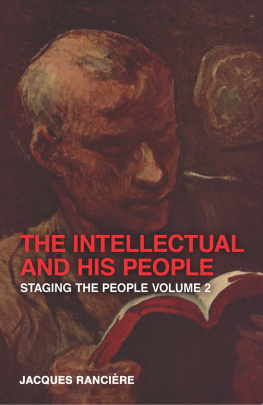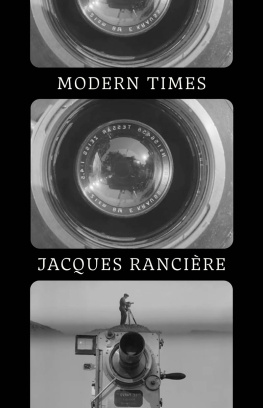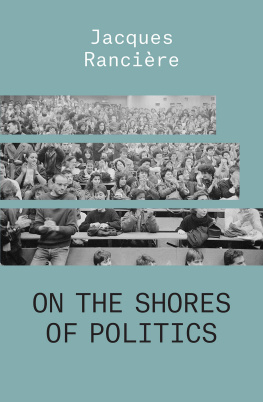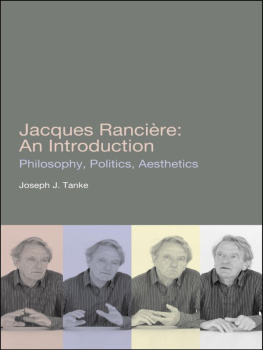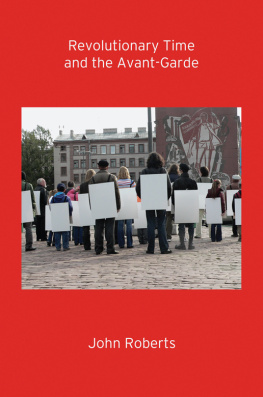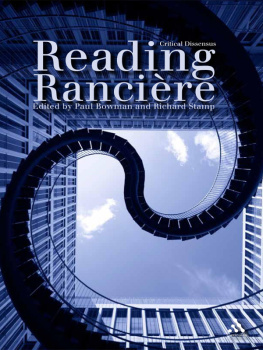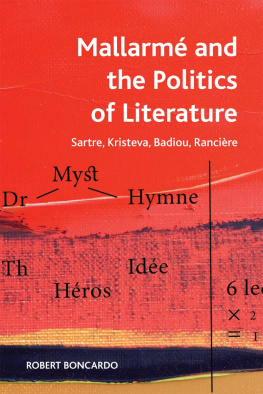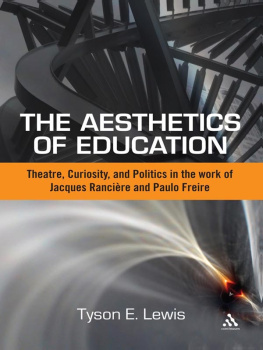THE INTELLECTUAL
AND HIS PEOPLE
STAGING THE PEOPLE, VOLUME 2
Jacques Rancire
Translated by David Fernbach

This work was published with the help of the French Ministry of Culture Centre National du Livre
This edition first published by Verso 2012
Verso 2012
Compiled from articles originally appearing in Les Rvoltes logiques
Les Rvoltes logiques 1975 to 1985
Translation David Fernbach 2012
All rights reserved
The moral rights of the author have been asserted
1 3 5 7 9 10 8 6 4 2
Verso
UK: 6 Meard Street, London W1F 0EG
US: 20 Jay Street, Suite 1010, Brooklyn, NY 11201
www.versobooks.com
Verso is the imprint of New Left Books
Epub ISBN-13: 978-1-84467-921-8
British Library Cataloguing in Publication Data
A catalogue record for this book is available from the British Library
Library of Congress Cataloging-in-Publication Data
A catalog record for this book is available from the Library of Congress
Typeset in Fournier by Matt Gavan, Cornwall, UK
Printed in the US by Maple Vail
Contents
The Peoples Theatre: A Long Drawn-Out Affair
July 1848. Citizen Eugne Delaporte, a former student at the Conservatoire and musician in the town of Sens, submitted to the members of the National Assembly a project approved by the minister of the interior. He drew their attention to an essential weapon for spreading Holy Fraternity and dissipating the shades of fanaticism and ignorance with the help of science: the development of choral music. As evidence, he cited the story of workers from the Faubourg Saint-Antoine who were canalizing the Marne and had been poorly received by the locals. Brawls had already broken out, when some Paris workers emerged from their ranks and performed in the open air some of those choruses that stir the masses, calm hatreds and lift up populations by reminding them of the common heavenly origin of us all. Fraternity then reigned on the Marne, and would soon reign throughout the Republic, by means of a unified organization of musical education and choral societies that this Citizen Delaporte was prepared to devote himself to directing.
November 1853. The same Delaporte, who had spent the last five years organizing local bands in the departments of Yonne, Aube, Marne and Seine-et-Marne, wrote to His Excellency the minister of the interior to remind him of a great truth: music is the most certain means to achieve the moralizing of the people. This was not because it raised them to heavenly fraternity, but more modestly because it drew them away from the bars. And over the years, high officials of state and His Majesty himself would be able to witness this: evil haunts and evil doctrines had lost ground, while religion, the family and social order had gained as choral singing expanded was this not a practical demonstration of the impossibility of achieving anything fine or great without the authority of a leader? A benefit for which the Empire would soon show appreciation, by appointing M. Delaporte to the post of inspector-general of musical societies.
What we can see here, over and above the opportunism of a particular individual, is the singular temporality that enables major socializing initiatives to be always timely. Social harmony through the artistic education of the people reflects the logic of social inventions. These stubbornly follow a dynamic of their own, whether summoned on the royal road of reform or that of governmental revolution, most often conveyed by the countless networks which are generated by the daily demand for new ideas to handle new school populations, distract new populations of workers, give new life to abandoned rural regions, instruct conscripts or moralize prisoners, not to mention creating new markets, ensuring the expansion of the press or giving substance to political alternatives. Everywhere that a connection is needed, the social inventors are at hand, resurging under every regime and acting as a pivot for new political investments less out of opportunism than from the spontaneous Aristotelianism that helps every particular regime to survive by establishing the most suitable form of sociability for all involved. What government would not welcome the project of improving popular manners by means of art? Everyone can understand heavenly fraternity or earthly docility as they like, and the socializing ideas will follow their course, ready to draw the contours of an objective socialism that is often far removed from the hopes and conflicts of politics. That does not simply mean that all cats are grey in the dark, but rather that roles and significations are distributed at an early stage according to an autonomous logic, forming a finished ensemble of alternative solutions to which the most dominant theoretical and political novelties cannot help bending.
The long drawn-out story of the peoples theatre offers a good illustration of this. The idea found a place early on at the centre of positions on Art and the People, positions that were both mutually contradictory and equally available for conservatives and revolutionaries. After half a century of oscillation between the accelerated revolutions of art and the permanent inertia of theatre administrations, by around 1900 this idea had become a complete set of possibilities that the novelty of Marxism had to accept as it was. The Brechtian critiques made much later demonstrated this, denouncing the Thtre National Populaire under Jean Vilar for its project of having a socially undifferentiated people celebrate their communion in one and the same ceremony, and contrasting this with a theatre that would keep the real people at a critical distance, away from petty-bourgeois consumers. This diagnosis was both correct and ineffective. In fact, Jean Vilar, just like Copeau, Gmier, Pottecher and a number of others, saw their audience as Michelets people. But there was no other audience for our popular theatre. Its project kept to the minimal proposition of not being a class theatre. The good people, the undiluted people, were left outside the field where desires for a peoples theatre might dwell. They belonged to a different tradition, one that precisely sought to remove the people from the social mingling and communitarian passions of the theatre. The undiluted people were the support for a certain idea of popular art, art without representation: that of folk tales, nursery rhymes, pottery and embroidery that were an extension of handicraft life and rural leisure activities. In the places and non-places allocated by the contradictory investments of art for the people, a popular theatre with neither communion nor identification belonged rather to critical thought than to the actual stage.
Taste and temperament: Athens and pinal
Let us start at the beginning. In other words, with the simple proposal to moralize the people through the spread of art. The constraints of the petitioning style in difficult times may embroider this with soothing images of decreed public festivals or homes regenerated by the sound of the harmonium and reproductions of Raphael. It is just that these images were never enough to mobilize any artists desire. Even musicians who were fervent upholders of the established order always refused to accept a bandsmans wrong notes for the false satisfaction of having pulled him away from the bar. And politicians who were a little enlightened knew that the question was more radical. To moralize meant creating manners. But manners are not created by lessons, rather by identification and imitation, in other words by learning a certain jouissance. And they only take hold of the social body insofar as they are held in common. To moralize the people thus meant providing them with some enjoyment in common with the aristocratic classes. Where moral submission to duty and the political claim for rights were equally powerless to merge or to exclude one another, moralization by way of art had a strong ideal to offer, that of a pleasure that simultaneously elevated the more powerful, subjected those below to discipline, and united both in a single community.
Next page
